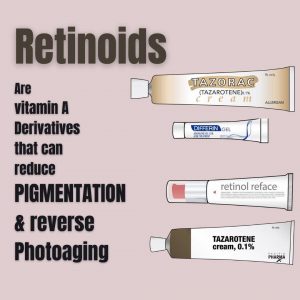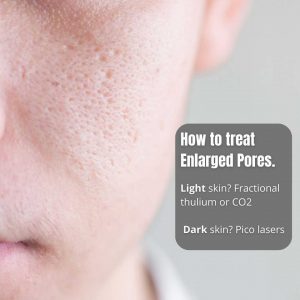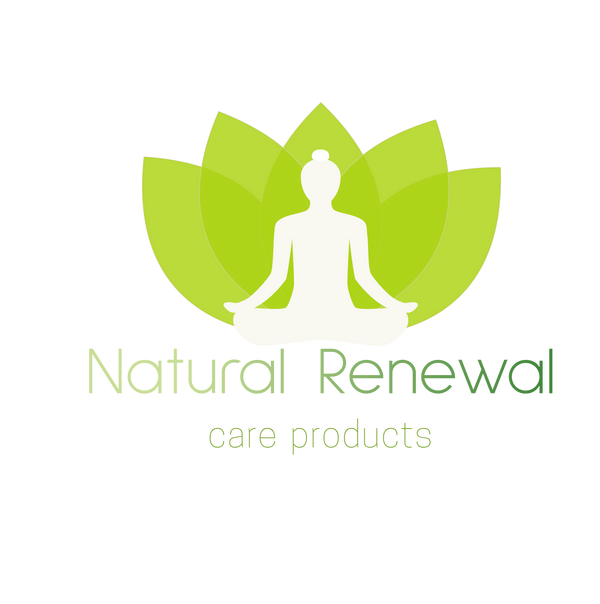FAQs
Tretinoin
What is the science behind tretinoin?
Tretinoin also known as Retin A or Retrieve belongs to the retinoid family of molecules. These are one of the most important & powerful ingredients in the science of skin care. Tretinoin can reduce oil production, increase the turnover rate of skin cells & stimulate collagen, elastin, as well as the formation of new blood vessels. Tretinoin can also decrease the amount of sun damaged cells, hence its use in anti-aging medicine.
How quickly does tretinoin work?
You may notice tretinoin starting to work within 2 to 3 weeks, but it can take 6 weeks or more to experience the full benefit. This is in the context of acne, just don’t expect tretinoin to erase your wrinkles. Retinol & retinoids are best used in the context of prevention, rather than reversal. A true ‘wrinkle removal cream’ is a unicorn .
What skin conditions can be treated with tretinoin?
Retinoids can be used in over 150 skin conditions including-
- Treatment & prevention of acne, blackheads, whiteheads
- Anti-ageing medicine to reduce wrinkles, fine lines & sun damage
- As a pigment corrector to treat melasma & hyperpigmentation
- As a superficial chemical peel
- Pore regulation & treatment for enlarged pores
-
Reduction of excessive oil production

Vitamin A analogues include retinol, retinaldehyde, tretinoin, tazoretene & trifarotene.
Which is stronger tretinoin or retinol?
Tretinoin is stronger than retinol. The latter requires conversion to retinoic acid before it can exert its molecular might. The flipside is that tretinoin has a much much higher incidence of skin irritation, or ‘retinoid dermatitis’. Almost everyone will experience irritation with tretinoin; it really depends on the concentration, frequency of use as well as innate skin sensitivity.

Should you use tretinoin every night?
The question should be, can you tolerate tretinoin every night? If you can tolerate the nightly application of tretinoin, go for it. The majority of people will have this topical as part of their skin care routine which may include other activities such as ascorbic acid, AHAs, BHAs, combination acids & antioxidants. These topicals may decrease your skin’s threshold for irritation, hence most people will have some form of irritation with medical grade prescription retinoids. See application guide to understand how to incorporate tretinoin into your skin care routine.

Prescription retinoids.

How can I incorporate tretinoin in my anti-aging skin care routine?
Tretinoin is best used as part of a combination skin care routine. My suggestion is that all patients start with a good formulation of retinol prior to tretinoin as the latter can result in skin irritation. Once you have mastered retinol, you can cautiously add tretinoin into your skin care overhaul.
Start every second night, rubbing a small pea size amount of tretinoin onto your forehead, cheeks, chin and other areas in which you notice wrinkles. Avoid applying tretinoin directly to your lips, sides of your nose & areas close to your lips, as these parts of the face can potentially become irritated. Tretinoin is best combined with other topical creams including antioxidants, niacinamide & targeted skin care products. Be guided by your skin care specialist.

If you want to step up your anti-aging routine by a huge margin, consider injectable biostimulators. This group of molecules are the most powerful stimulators of fibroblasts- cells that directly produce collagen. Biostimulators produce a clinically visible & often profound result.
Depending on your age, dermatologists employ different biostimulatory compounds such as poly-L-lactic acid, hyaluronic acids, polycaprolactone & polynucleotides.
Can I use tretinoin if I have sensitive skin?
Yes, however it is much easier titrating retinol into your skin care routine compared to the more powerful version of vitamin A, namely tretinoin. Once you have mastered retinol, you can cautiously titrate tretinoin into your skin care routine as tolerated. Sensitive skin patients including rosacea patients can start as follows-
- Combine half or even quarter pea size amount of tretinoin with your moisturiser
- Apply test spot to front of ear
- If no reaction, proceed to apply once a week to target areas
- If you have reactive skin, decrease use
- Titrate as clinically tolerated
- Be guided by your medical dermatologist (refer to disclaimer below)
Patients with sensitive skin should ideally be treated with laser & light-based technology, topicals including chemical peels should be avoided.
Disclaimer: If you have sensitive skin and would like to pursue topical treatments as part of your skin care routine, please consult a medical dermatologist & not myself. In some cases, testing is required to exclude contact dermatitis. This is a medical investigation as some cases may require allergic patch testing. This is beyond my speciality interest.
Can tretinoin be used on rosacea patients?
Technically yes, but titration is required. Discuss this with your dermatologist. A much better solution is retinol, as it has less irritation. If you suffer rosacea, the first skin care active should be vitamin B, namely niacinamide as this is anti-inflammatory.
For anti-aging, rosacea patients will benefit from laser & light-based modalities over topical & chemical peels.
Can tretinoin be used to treat blackheads & acne?
Yes, topical retinoids are one of the most effective treatments for blackheads, whiteheads, zits, pustules & cysts. Here are some facts regarding tretinoin use for the management of acne:
- Apply tretinoin to acne prone areas & not spots
- Retinoids are best at preventing not treating acne lesions
- It may take 6-8 weeks for maximal effect
- Irritation can occur as acne is often associated with a compromised skin barrier function
- Start slowly, namely every second night
- Moisturise if you experience dryness
-
Purging is commonly seen with retinoids, this lasts 2-3 weeks

Retinol can be purchased without a prescription. Used night for 6 weeks, it can reduce mild case of acne. The next step up?
Prescription retinoids.
How can tretinoin help enlarged pores?
A double-blind study found that tretinoin & retinol can reduce the appearance of large pores. This form of topical vitamin A can reduce oil production by overactive pores, additionally production of collagen, elastin and hyaluronic acid provides the support for large pores.
Pore reduction is best achieved with combination therapy including the use of retinol/retinoids, AHA or BHA compounds, & in most cases conservative laser resurfacing or clinical strength chemical peels.

Can hormonal acne be treated with tretinoin?
Retinoids can help treat hormonal imbalances by modulating the oil gland. Tretinoin does not affect the hormonal imbalances that can lead to adult hormonal acne.
Tretinoin can reduce oil production & normalise abnormal shedding of cells that may lead to outbreaks. Ideally hormonal acne should be treated with lifestyle modification, correct use of products, topicals including tretinoin, & in severe cases medications to keep your hormonal balance in check. Be guided by your medical dermatologist.

Can tretinoin reverse wrinkles?
Tretinoin belongs to the family of retinoids—the most used and most studied anti-aging compounds may reduce fine lines & wrinkles.
Used correctly, tretinoin is more effective in preventing wrinkles, rather than treating them. Simple procedures including clinical chemical peels, fractional lasers, Tixel, microneedling & Botox produce far better & more predictable results than any anti-wrinkle cream.
Biostimulatory collagen induction injectables provide & infinitely better solution for wrinkles as compared to even the most powerful prescription retinoids.
Should I moisturise before or after tretinoin?
Several options. If you have normal skin, you can apply moisturizer with tretinoin, bearing in mind that you may dilute it, depending on the amount of each you use. Another method is called the sandwich technique. Apply a base layer of your favourite moisturizer, then apply tretinoin. Studies have shown that the base layer does not dilute or reduce the efficacy of the retinoid, in fact it helps with tolerability. Look for ingredients such as glycerin, hyaluronic acid or squalene as a key moisturizing ingredient. The final step in this sandwich technique is another coat or moisturizer. So it goes something like- moisturise, tretinoin (or other retinoid), moisturizer.
Word of advice; if you have any side effects associated with retinoid therapy, apply a bland moisturiser frequently. This can mean up to and even beyond three times a day.
Can tretinoin be combined with ascorbic acid?
Yes, but not at the same time. When used in the right order, Vitamin C should be applied in the morning as it protects your skin from UV induced collagen loss, whilst tretinoin at night as this builds new collagen. The most important concept to understand is that everyone has a different skin threshold namely your skin type may not tolerate this combination. If you have any irritation, redness, burning or flaking, stop your ascorbic acid for five days, then recommence as TOLERATED.
Which skin products are compatible with tretinoin?
Hyaluronic acid is the standout topical compatible with virtually everything, followed by niacinamide. Some prescription formulations combine retinoids with other ingredients such as hydroquinone. Be guided by your skin care expert.
Skin ingredients interactions are extremely complex with no hard and fast rules as the biggest unknown factor is YOUR skin’s threshold. Exert common sense when combining ingredients, namely- start slowly, apply a test patch area, & above all listen to your skin. If you have any irritation, back off, & let your skin recover.
What products should NOT be mixed with tretinoin?
Unless your skin care specialist tells you otherwise, it is especially important to avoid using the following skin products on the same area as tretinoin: benzoyl peroxide, salicylic acid, *lactic acid, *glycolic acids, *citric acid, high strength ascorbic acid. These acids & actives will increase skin irritation.
*For advanced & sensible skin care junkies, tretinoin can be combined with acids. The latter acts as a priming agent to enhance the penetration of retinoids. Ascorbic acid should ideally be used in the am, retinoids in the pm. Be guided by your skin care expert.
Can I use tretinoin on my neck?
Yes. Start off with a pea size amount of actives, mix with your moisturizer of choice, apply alternate nights and increase as tolerated. If you peel, itch, go flaky, go red, or if you have stingy skin, you have exceeded your skin’s threshold. Stop for 5 days, then restart slowly. Application should be at night.
Will my skin purge with tretinoin?
The ‘retinoid purge’ period is common if you suffer from acne or blackheads. This is because retinoids increase the turnover of skin cells. This normally lasts 7-21 days. Alternatively, during the Tretinoin Purge, your skin might feel too dehydrated, and start over-producing oil. This is also very common and completely normal.
How does tretinoin compare with adapalene & Zorac - tazarotene?
These molecules are all members of the retinoid family. Tretinoin is generation one, adapalene or Differin is generation two, whilst tazarotene or Zorac is generation three.
The most powerful retinoid to date (2024) is called trifarotene. The trade name is called Akief & is available in Australia under prescription.
| Most powerful | Zorac + Aklief |
| Least irritation | Differin |
| Most irritation | Zorac |
|
Most Frequently used
For anti-ageing |
Tretinoin |
What strength tretinoin is best for wrinkles?
The answer is not the strength, & the question would strength retinol or retinoids can YOUR skin tolerate? Tretinoin usually comes in 3 strengths – 0.025%, 0.05%, and 0.1%. Compounded topicals go up to 7 percent tretinoin. This is reserved for clinical peels under supervision.
0.05% is seen most often for anti-aging preparations to reduce the appearance of fine lines, however most patients cannot tolerate nightly application of this strength. I suggest starting off with good retinol, pushing up to the highest OTC concentration before embarking on your RETINOIC ACID journey.
At what age should I start retinoids?
Starting in your mid 20s would be sensible. Having said that, it is never too late to start caring for your skin! In fact, the oldest patient I started on retinoids (topically) was in her 90s!
What are the side effects of tretinoin cream?
Unless you have retinoid receptor resistance (one in a million), EVERYONE who applies topical prescription retinoids WILL have side effects. This threshold depends on the concentration of tretinoin, application frequency, skin barrier function & your innate skin sensitivity.
Side effects include:
- Burning, itching, stinging, scaling, or redness of the skin.
- Chapping or slight peeling of the skin (mild to moderate)
- Darkening of the skin.
- Lightening of normal skin colour.
- Lightening of treated areas of dark skin.
- Purging of acne
- Redness of skin (mild)
- Unusual dryness of skin (mild)
- Unusually warm skin (mild)
Why is tretinoin prescription only?
Because of Retin A’s power in bringing about changes, it only makes sense that there’s an increased potential for side effects. This is the primary reason why the FDA & TGA classified Retin A / Retrieve / Tretinoin as a prescription medication.
I do agree with this view as I feel that the absolutely majority of consumers will run into trouble with powerful retinoids. Having said this, retinoid use is not complicated providing you follow some simple steps, as illustrated in this write up.
A contradiction is that Adapalene or Differin, which is a more powerful second-generation topical retinoid is available over the counter in the United States & in some European countries. (Though Diffein has a more powerful action against acne compared to tretinoin, the side effect profile is marginally less). This is due to Galderma’s strategic marketing & funded drug trials, smart financial move by this pharmaceutical company.
Regulation is also required due the pregnancy rating of retinoids, namely Category X. The logic does not hold for adapalene. You can obtain a prescription for topical retinoids including tretinoin/Retrieve or Differin/adapalene from your local general practitioner or nurse practitioner.
Are there non-prescription alternatives to Tretinoin?
If you like the idea of the results tretinoin produces, but aren’t keen on the associated side effects, there are other options available. Non-prescription retinol products have been shown to be effective, without the side effects. Keep in mind that the results may take a little longer to achieve & that the quality, especially the formulation of the product is the key. Look beyond the concentration of retinol.
A sensible step is to start at 0.5% retinol every second night, thereafter, increasing the frequency of application. If you tolerate this for 3 months, increase your application concentration to 1%, again starting every second night.
Can tretinoin be used in pregnancy?
No. Retinoids including tretinoin, retinoic acid & even retinol cannot be used in pregnancy. This is because high doses can lead to foetal birth defects. If you find out you are pregnant on a topical retinoid, cease immediately. The chances of a topical retinoid causing birth defects is extremely unlikely- most experts say zero, however you should discuss this with your obstetrician.
Let customers speak for us
from 639 reviewsLlevo tiempo buscando un sitio web que enviaran está crema. Vendedor fiable. Lo recomiendo. Volveré a comprar.

They came in a bit late, but they gave me something extra to make up for the delay. Works like a charm

Fast delivery to France and legit product!! Thank youu

The tubes arrived in good condition.

This creme is the truth!!! I saw results after one week. My complexion is of a brown skinned black woman and I plan on using this just on my face however I plan on my elbows and other areas of discoloration. Sunscreen is highly recommended as to not reverse results.

I'm absolutely thrilled with my purchase of Acnelyse 0.05% Skin Cream from The Natural Renewal! I've been using it for almost 3 months now, and the results are truly remarkable. This product is, without a doubt, the best my skin has ever looked.
I am completely obsessed with how much my complexion has improved. My skin feels renewed, smoother, and healthier than ever before. The claims of "skin renewal" are not just marketing they're genuinely what I've experienced.
The Natural Renewal has gained a customer for life with this product. I will absolutely be returning to purchase more and more. If you're looking for an acne treatment that also revitalizes your skin, I highly recommend Acnelyse 0.05% Skin Cream!

I wasn’t sure about ordering this but was pleasantly surprised to find that it is genuine retin A. I use it nightly to combat oily skin.

Good price, fast postage with tracking and a product I can't usually by here in the UK. Will definitely be ordering again. Thank you!

I haven't been using the product long enough to give a review on that but it came neatly wrapped with a small gift.

I had issues with shipment and reached out to The Natural Renewal. They went above and beyond to help resolve the issue. Thank you!

Great product and it’s powerful!!
Shipping was super quick and I’m very happy with my decision to order from the natural renewal. I’m going to place another order soon!

Great product and reliable provider, I'm glad I found a website that can ship to all countries, thank you the Natural renewal!

Arrived very quickly and you can ask for taz in gel form which is great! Thanks!!

They have the Gel version if you request and the shipment was FAST.

Excellent cream. Use it every second night for 60 years old women. Skin looks much better after use. Reccomend.

